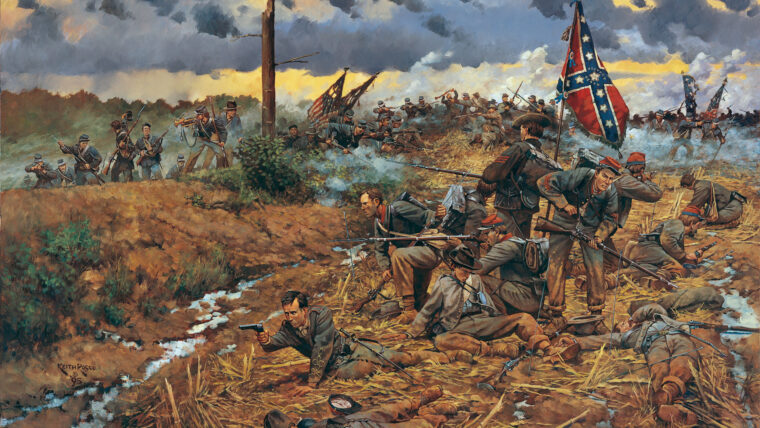
Civil War
Black Thursday at Sayler’s Creek
By David A. NorrisFour hundred Confederate sailors and marines, their small arms loaded and ready, awaited their orders. Some men had their cutlasses within easy reach. Read more
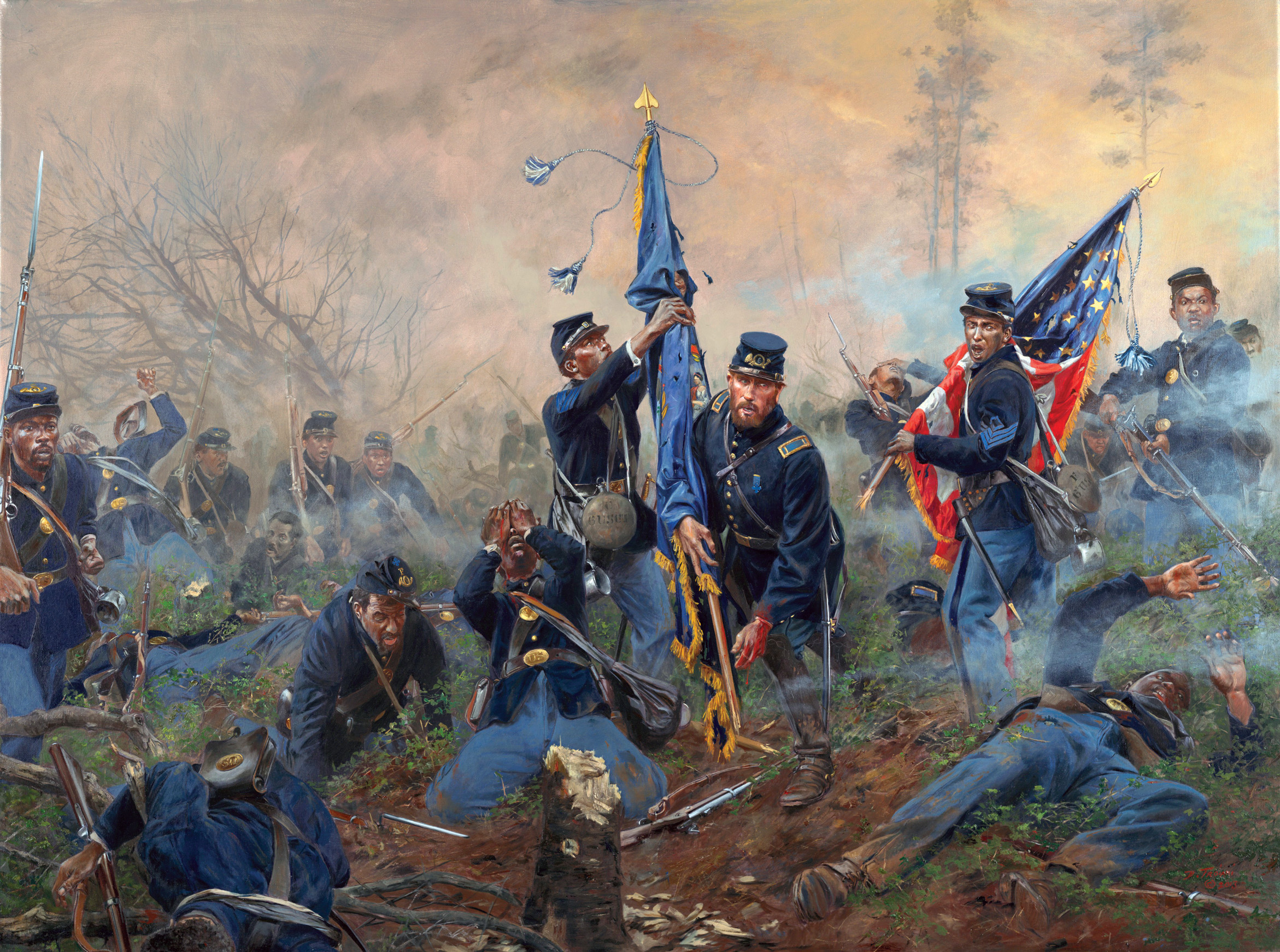

Civil War
Four hundred Confederate sailors and marines, their small arms loaded and ready, awaited their orders. Some men had their cutlasses within easy reach. Read more
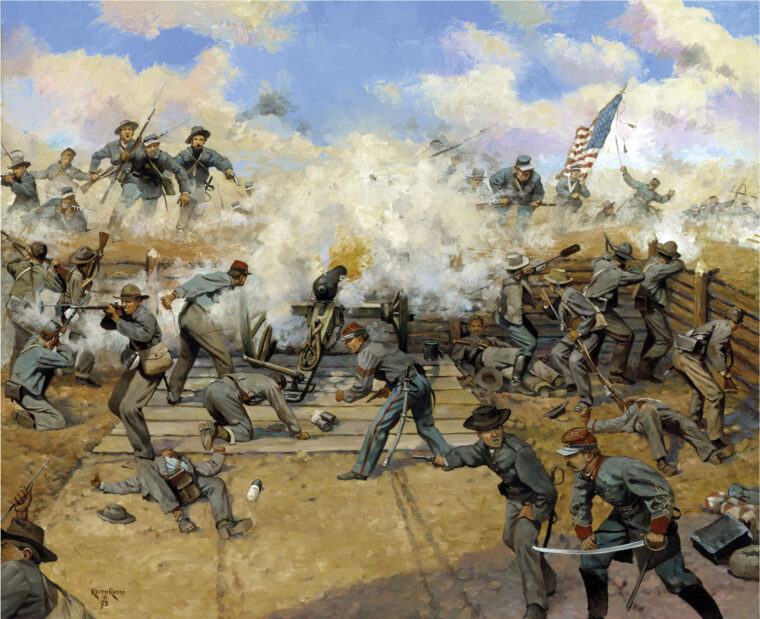
Civil War
Lieutenant Colonel Horace Porter, personal aide to Lt. Gen. Ulysses S. Grant, maneuvered his mount past ammunition wagons, ambulances, stragglers, and prisoners jamming the muddy roads leading back to headquarters from Five Forks, Virginia, on the evening of April 1, 1865. Read more
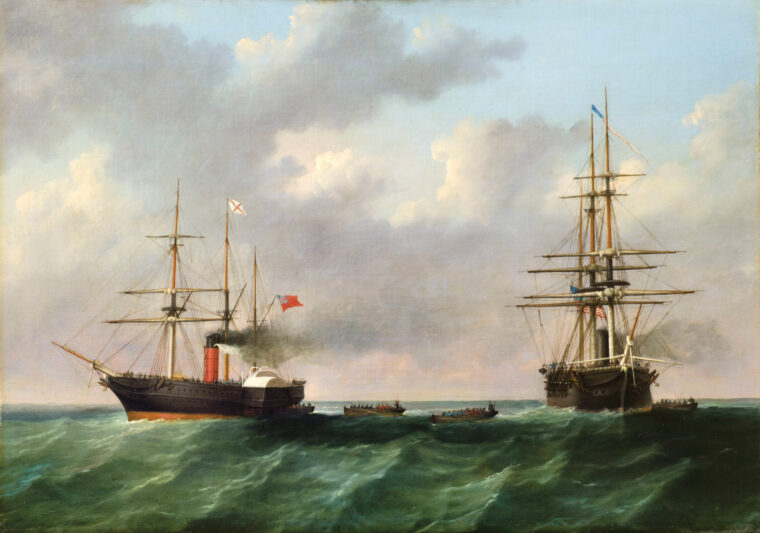
Civil War
In November 1861, word swept through London that an American warship, James Adger, in port at Southampton, was planning to put to sea and intercept a British ship bringing Confederate emissaries to Europe. Read more
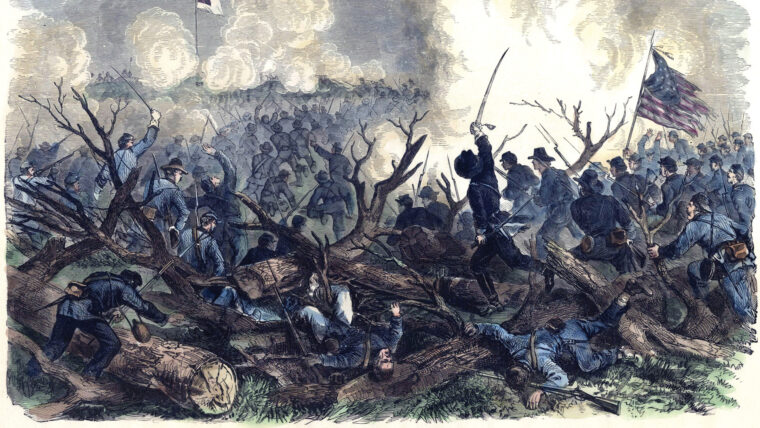
Civil War
Nathaniel Banks was a political creature, and with his country in the throes of civil war, he now held the politically obtained rank of major general in the Union Army. Read more
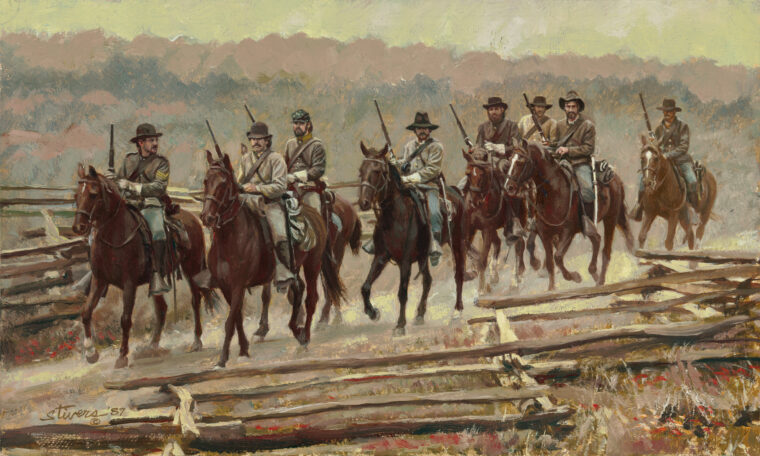
Civil War
“Fighting Joe” Hooker was fighting mad when he summoned his chief of cavalry, Brig. Gen. George Stoneman, to his headquarters at Falmouth, Virginia, on February 26, 1863. Read more
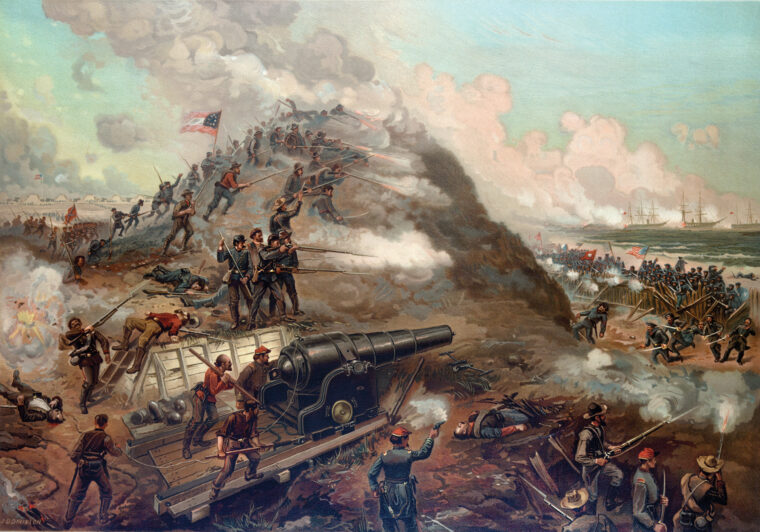
Civil War
The prospect of running the Federal blockade at Wilmington was easy in the beginning. North Carolina’s principal seaport was blockaded by a single warship, USS Daylight, and no one took the threat seriously. Read more
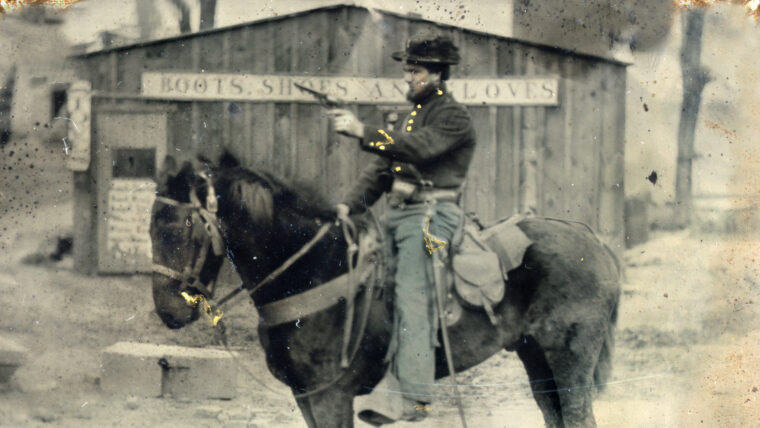
Civil War
Union Colonel Benjamin Grierson stuck his left foot into the stirrup and swung up into the saddle. Orders were quickly given, and soon a column of 1,700 blue-jacketed troopers of Grierson’s 1st Brigade, along with a battery of artillery, trampled southeast from La Grange, Tennessee, in the early dawn of April 17, 1863. Read more
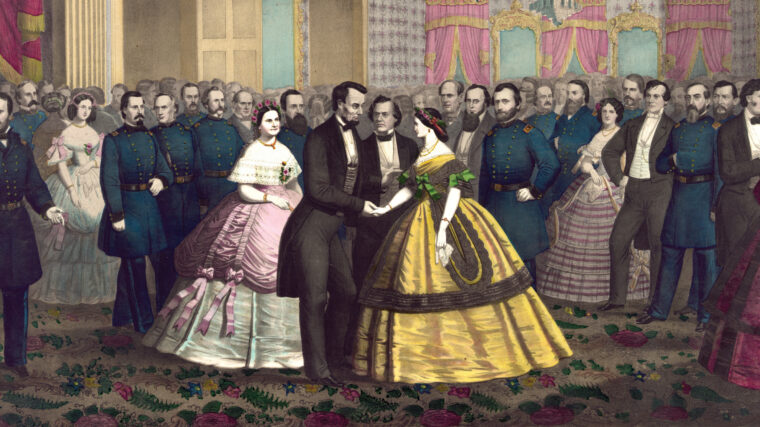
Civil War
On March 8, 1864, a rainy Tuesday, President and Mrs. Lincoln held a reception at the White House in Washington. Read more
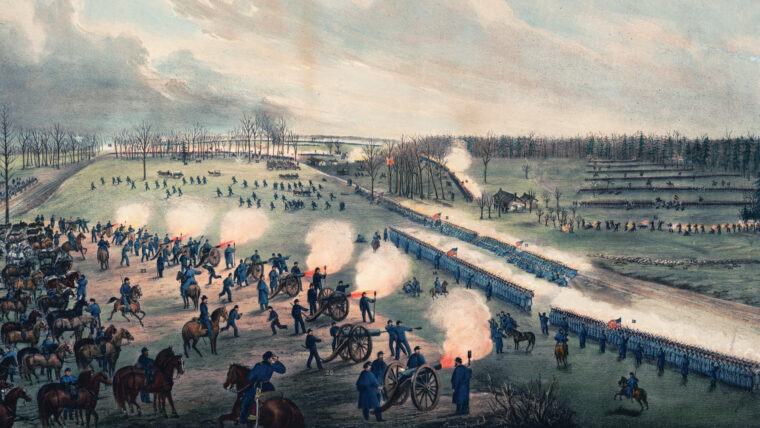
Civil War
For the weary troops of the Army of the Cumberland, there was precious little sleep to be had in the farm fields and cedar thickets northwest of Murfreesboro, Tennessee. Read more
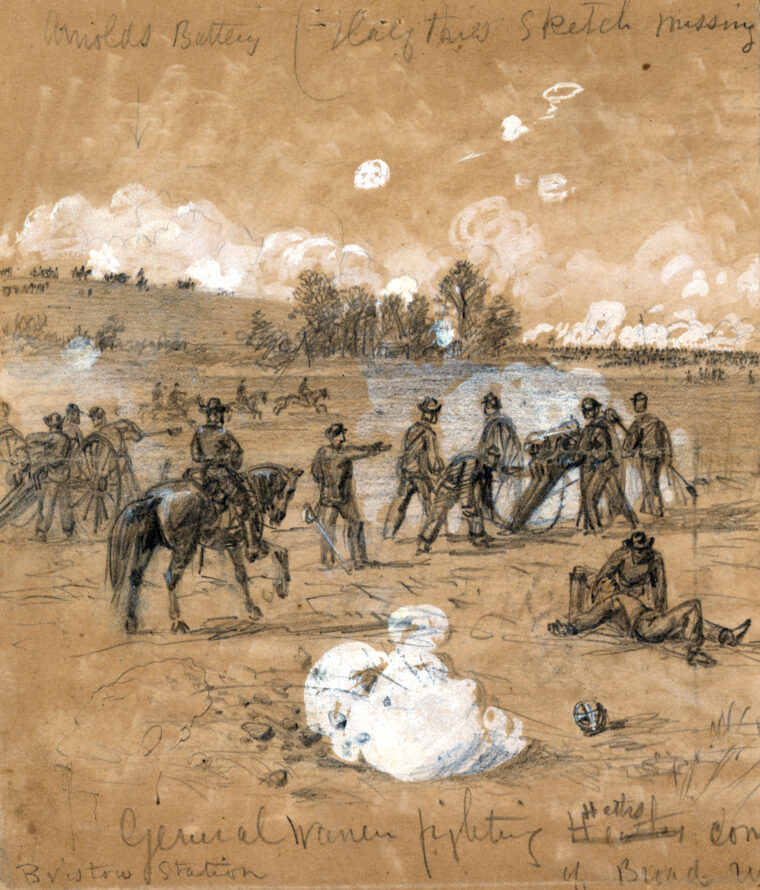
Civil War
In late July 1863, after the conclusion of the Gettysburg campaign, the Union Army of the Potomac, under Maj. Read more
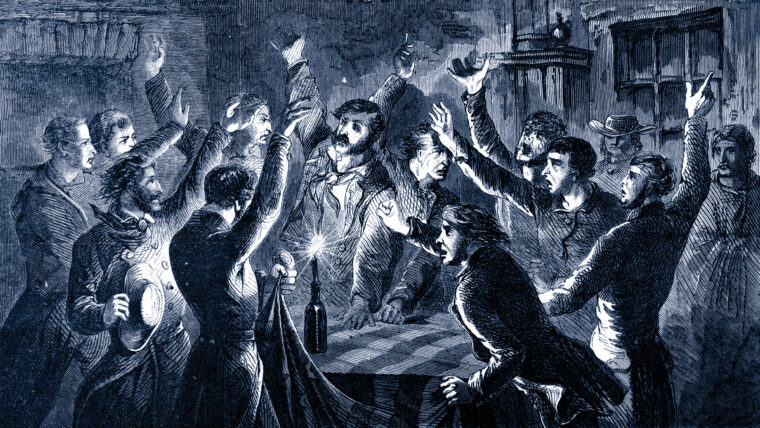
Civil War
The Confederate States of America fought two wars, one against the armed forces of the United States and one against fellow Southerners who joined either the Union Army or pro-Union guerrilla groups. Read more
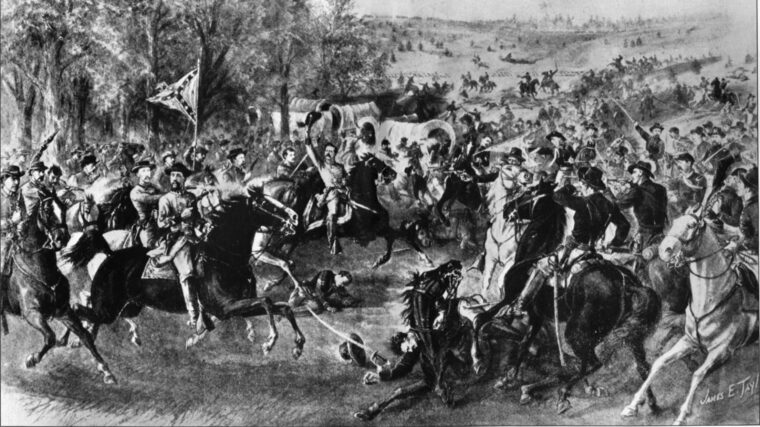
Civil War
Despite costing the Union Army 55,000 men in five weeks of hard marching and grueling combat, Lt. Gen. Read more
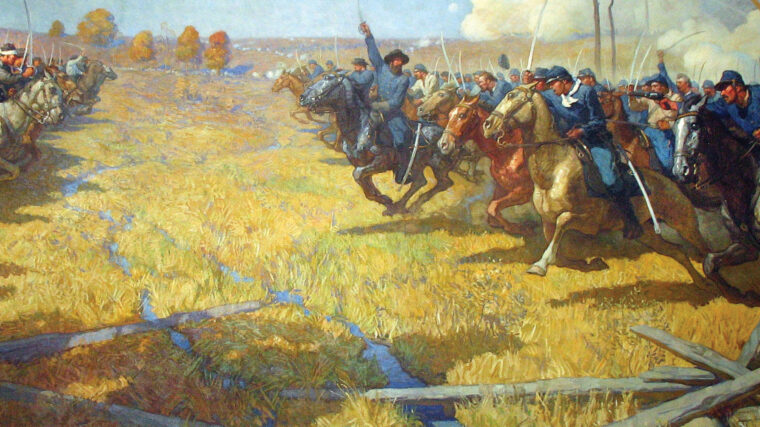
Civil War
Under a bright, high sun in a pale blue Midwestern sky, six companies of the United States Cavalry’s 1st Regiment rode into a grassy valley bordering the south fork of the Solomon River in northwestern Kansas on the afternoon of July 29, 1857. Read more
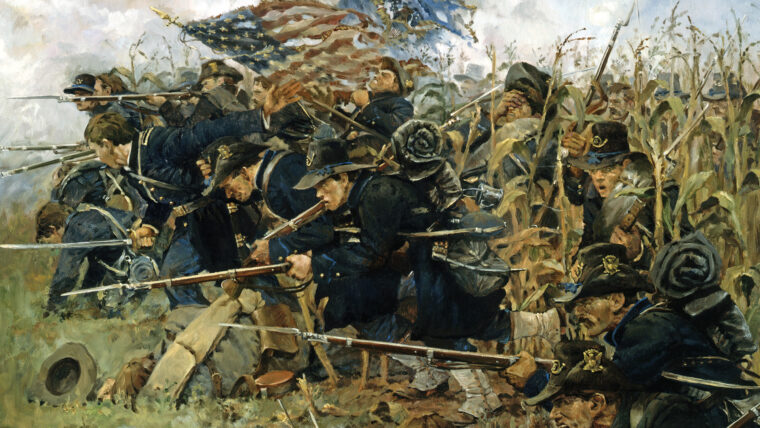
Civil War
The White House was a somber place in the summer of 1862. The Civil War was in the midst of its second costly year, and the Union armies had yet to win a significant victory in the eastern theater. Read more
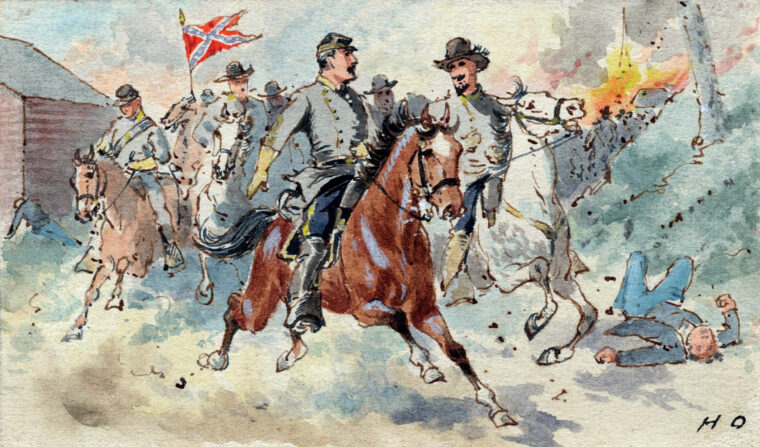
Civil War
“It was a sad, sorrowful day,” recalled Confederate Major James McCreary, “and more tears of grief rolled over my weather beaten cheeks on this mournful occasion than have before for years.” Read more
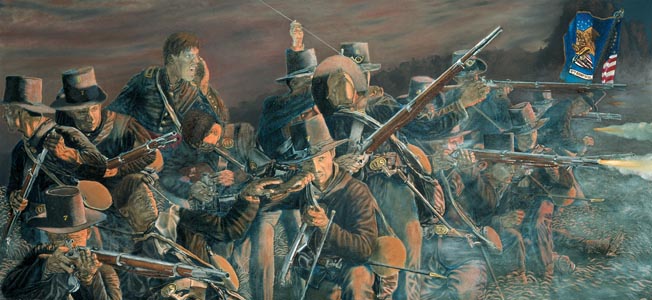
Civil War
The ground around Manassas, Virginia, was not auspicious for Union Army forces in the first two years of the Civil War. Read more
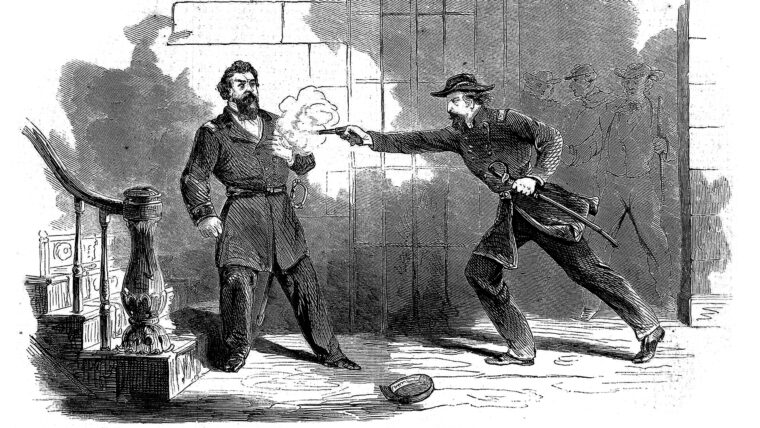
Civil War
Few Civil War officers, in either army, were as polarizing as Union Maj. Gen. William “Bull” Nelson. Read more
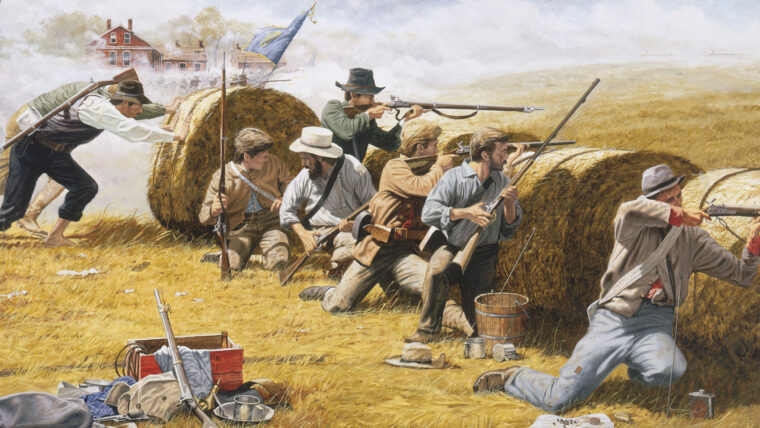
Civil War
Brigadier General James S. Rains’s Confederate cavalry rode confidently toward the prosperous little town of Lexington, Missouri. Dressed in Missouri homespun, Rains’s men hardly looked the part of a flying military column, but most of the hard-riding horsemen had known only victory during their short service. Read more
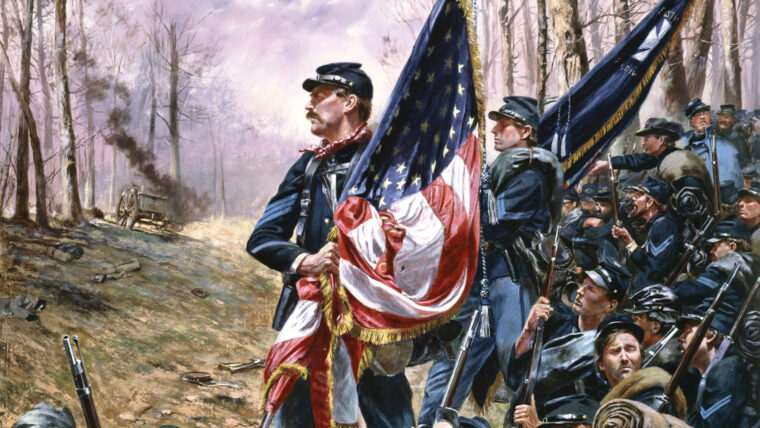
Civil War
When the Civil War erupted in April 1861, the 10 companies of the 4th U.S. Read more
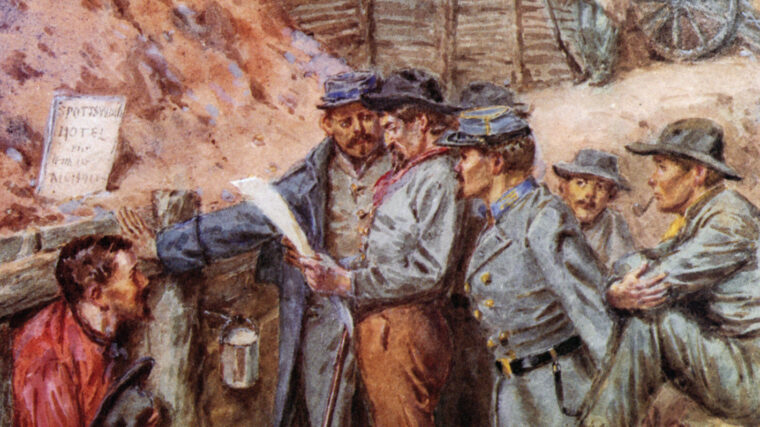
Civil War
“For sugar the government often got sand; for coffee, rye; for leather, something no better than brown paper; for sound horses and mules, spavined beasts and dying donkeys; and for serviceable muskets and pistols, the experimental failures of sanguine inventors, or the refuse of shops and foreign armories.” Read more